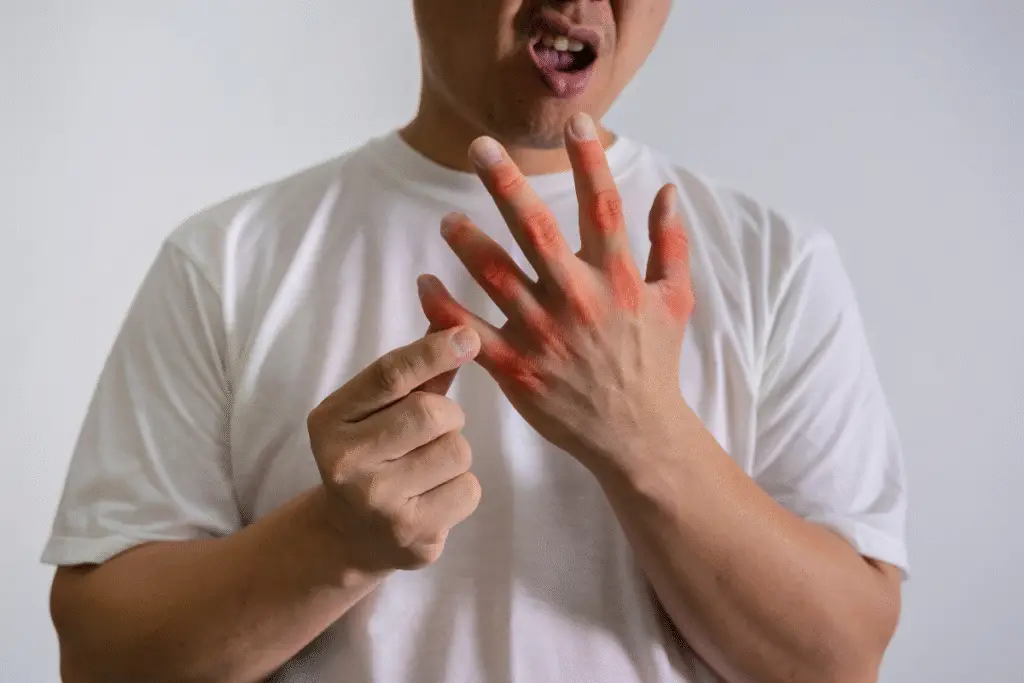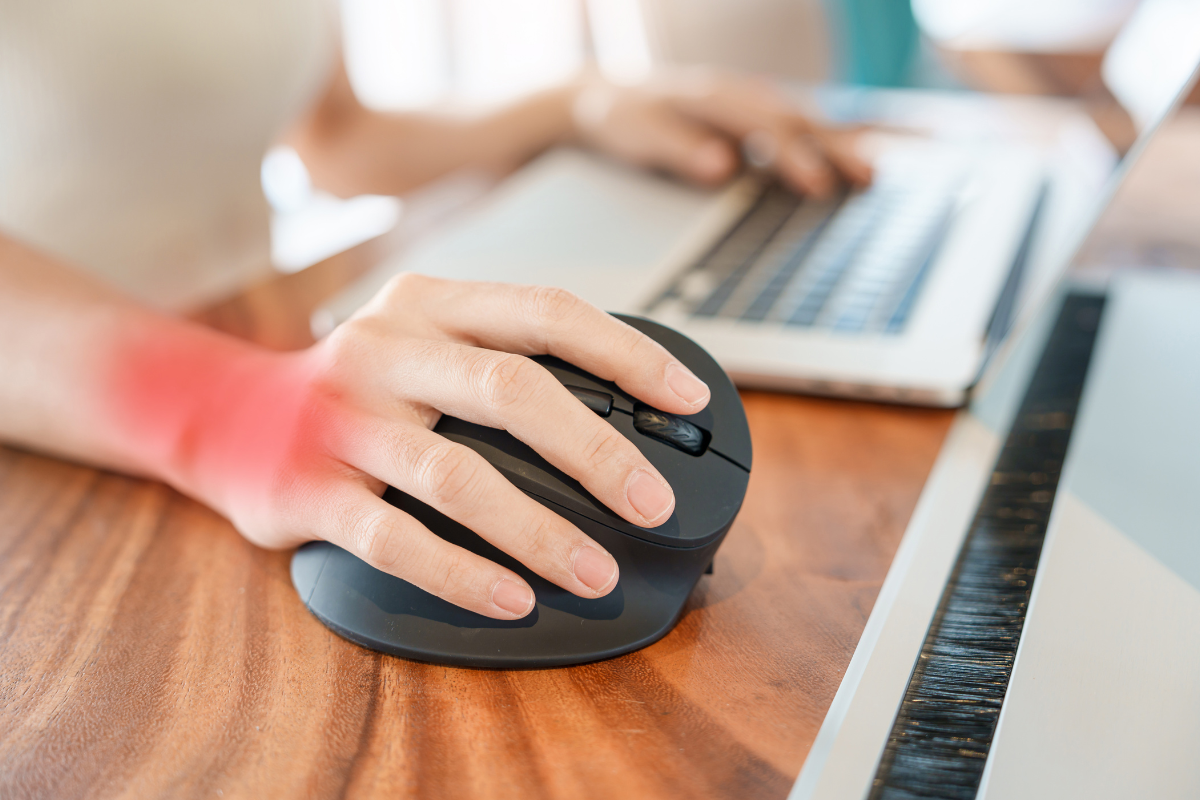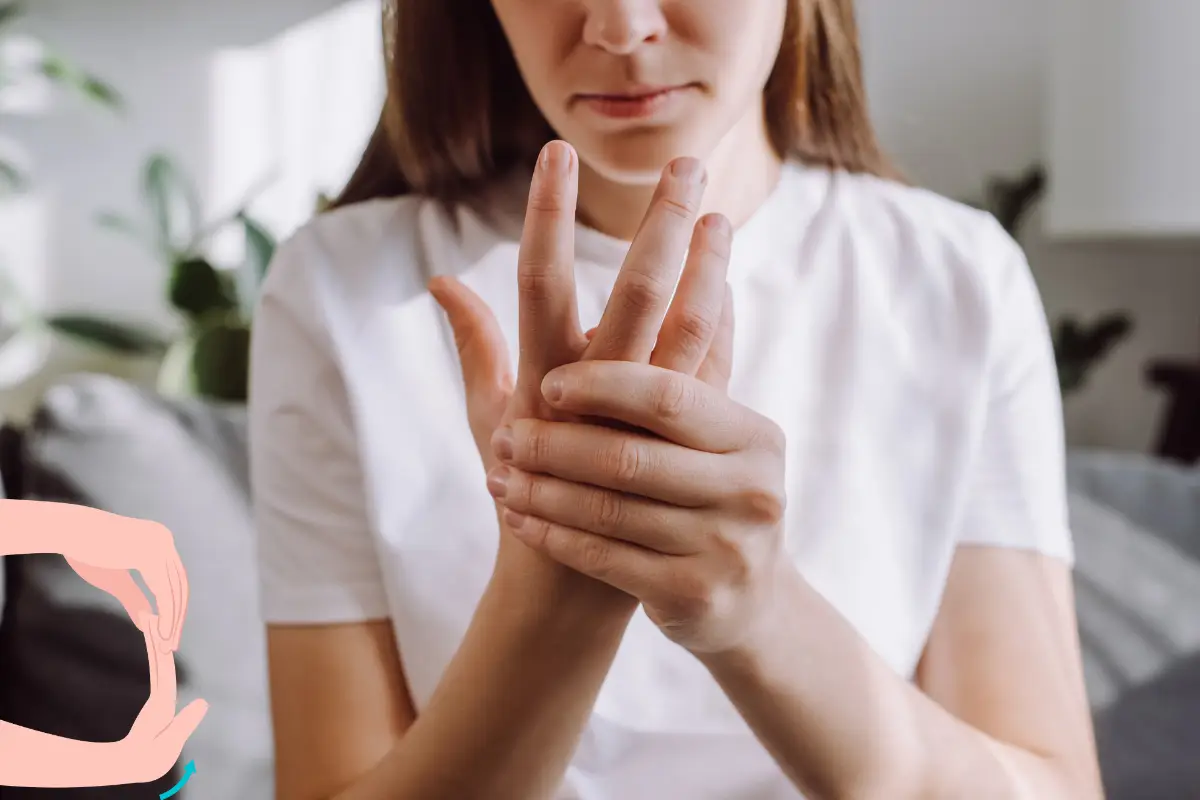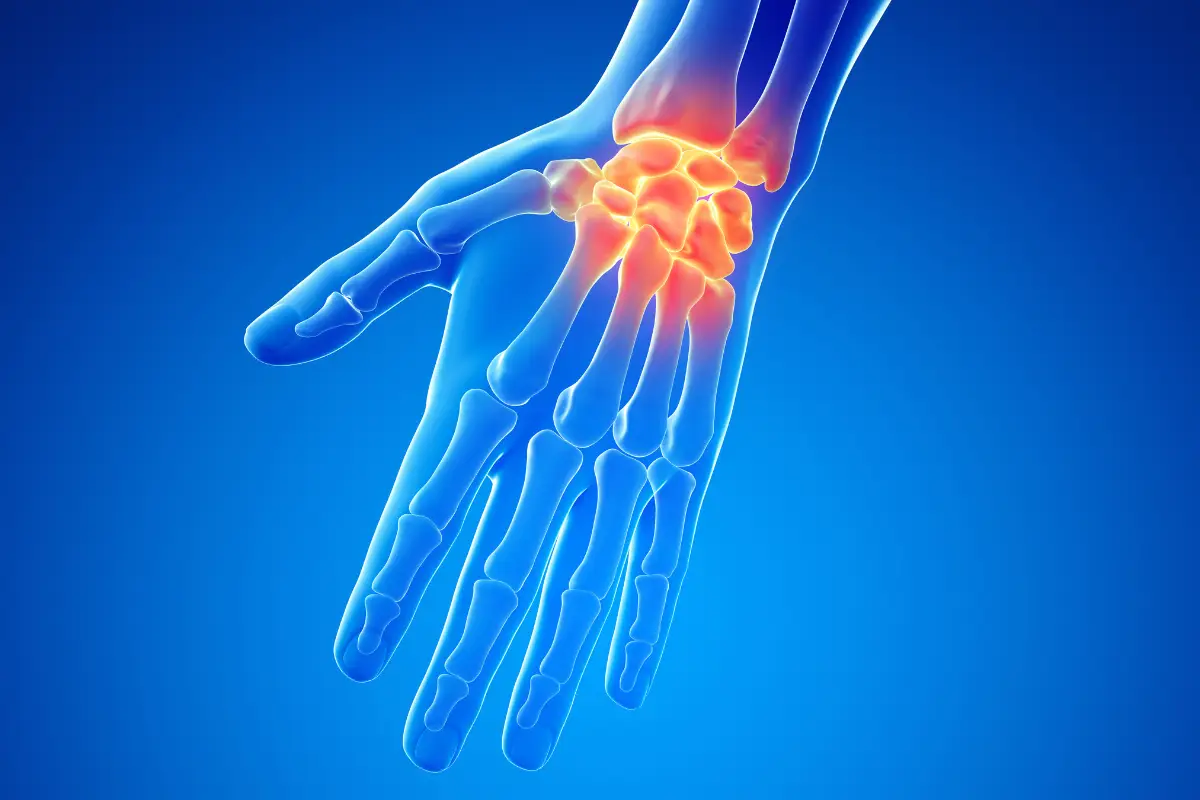- +91 75677 63301
- 24*7 Emergency Care
Sore finger joints? 10 possible causes & When to see a doctor
- Home
- /
- Sore Fingers
- /
- Sore finger joints? 10...

Experiencing soreness in your finger joints can be frustrating and even alarming, especially when it starts to interfere with everyday activities like writing, gripping, or typing. While temporary soreness might not be a concern, persistent or recurring finger joint pain can be a sign of an underlying condition that requires medical attention.
In this blog, we explore:
- 10 potential causes behind sore finger joints
- When you should seek medical advice
- Closely related FAQs to address common concerns
Table of Contents
ToggleWhat causes sore finger joints?
Pain in the finger joints usually results from inflammation, wear and tear, autoimmune response, or trauma affecting the bones, ligaments, tendons, or cartilage in your hands.
Let’s look at 10 common medical and mechanical causes:
- Osteoarthritis (Joint wear & tear)
- Rheumatoid arthritis (Autoimmune cause)
- Repetitive Strain Injury (RSI)
- Gout (Uric acid crystal build-up)
- Psoriatic arthritis
- Lupus (Systemic autoimmune disorder)
- Trauma or Injury
- Trigger finger (Tendon irritation)
- Infectious arthritis (Septic arthritis)
- Raynaud’s phenomenon (Circulatory issue)
1. Osteoarthritis (Joint wear & tear)
This is a degenerative joint condition caused by the breakdown of cartilage—the protective layer between bones. Over time, the cartilage wears away, causing bones to rub against each other, leading to pain and stiffness in the joints.
Why it happens:
- Age-related degeneration
- Joint overuse (repetitive motions)
- Previous joint injuries
Often seen in: Adults over 50 and those with manual labor jobs or repetitive hand use.
2. Rheumatoid arthritis (Autoimmune cause)
Rheumatoid arthritis (RA) is an autoimmune disease where the body’s immune system mistakenly attacks the lining of the joints (synovium), causing inflammation and pain.
Why it happens:
- Genetic predisposition
- Environmental triggers
- Autoimmune dysfunction
Often seen in: Adults between 30–60 years old; more common in women.
3. Repetitive Strain Injury (RSI)
Repetitive activities such as typing, using tools, or playing musical instruments can overuse tendons and small joints in the fingers, leading to inflammation.
Why it happens:
- Repetitive hand motions without rest.
- Poor ergonomics
- Improper technique while lifting or typing.
Often seen in: Office workers, musicians, and technicians.
4. Gout (Uric acid crystal build-up)
Gout is caused by the accumulation of uric acid crystals in joints, which can lead to intense inflammation and pain, including in finger joints.
Why it happens:
- High-purine diet (red meat, alcohol, seafood)
- Obesity
- Kidney issues that impair uric acid clearance
Often seen in: Middle-aged individuals, especially males.
5. Psoriatic arthritis
This form of arthritis occurs in people who have psoriasis—a skin condition. It causes joint inflammation, including in the fingers.
Why it happens:
- Immune system mistakenly attacks healthy joints.
- Genetic or family history of psoriasis.
Often seen in: People already diagnosed with psoriasis.
6. Lupus (Systemic autoimmune disorder)
Lupus is a chronic autoimmune disease that affects multiple organs, including joints. It can cause persistent joint pain and inflammation in the fingers.
Why it happens:
- Immune system attack on connective tissues.
- Genetic and hormonal factors.
Often seen in: Women aged 15 to 45 years.
7. Trauma or Injury
Injuries such as fractures, sprains, or dislocations of the finger joints can lead to short- or long-term soreness, especially if not treated properly.
Why it happens:
- Sports injuries
- Falls
- Direct impact to the hand.
Often seen in: Athletes and active individuals.
8. Trigger finger (Tendon irritation)
Trigger finger occurs when the tendon that bends the finger becomes irritated and inflamed, making it difficult for the finger to straighten smoothly.
Why it happens:
- Thickening of the tendon sheath.
- Repetitive gripping or forceful hand use.
- Diabetes and rheumatoid arthritis.
Often seen in: Adults over 40, especially women.
9. Infectious arthritis (Septic arthritis)
This is a serious condition where bacteria or viruses infect the joint space, leading to inflammation and pain.
Why it happens:
- Bacterial infection entering via wounds, surgery, or bloodstream.
- Weakened immune system
- Pre-existing joint disease.
Often seen in: People with low immunity or joint prostheses.
10. Raynaud’s phenomenon (Circulatory issue)
Although it doesn’t directly cause joint pain, poor blood flow in Raynaud’s can lead to soreness, especially in colder climates.
Why it happens:
- Blood vessels spasm in fingers.
- Cold exposure or emotional stress.
- Autoimmune associations
Often seen in: Young women and individuals with autoimmune conditions.
When to see a doctor?
You should consult a healthcare professional if:
- The soreness lasts more than a few days.
- You notice visible swelling, deformity, or discoloration.
- Your fingers feel stiff in the morning for more than 30 minutes.
- You experience numbness, tingling, or weakness.
- There are signs of infection (redness, warmth, fever).
- Pain interferes with daily tasks like writing or gripping.
Diagnosis & Treatment for sore finger joints
Depending on the underlying cause, your doctor may recommend:
- X-rays or ultrasound imaging.
- Blood tests (for autoimmune or gout diagnosis).
- Splints, braces, or anti-inflammatory medications.
- Steroid injections
- Physical or occupational therapy.
- Surgical intervention in severe cases.
Conclusion
Sore finger joints shouldn’t be ignored—especially if the pain is persistent, affects daily function, or appears alongside swelling, stiffness, or redness. Understanding the possible causes is the first step toward proper treatment and relief.
If you’re experiencing ongoing joint pain in your hands or fingers, consider seeking expert care. Krisha Hand Hospital, Ahmedabad, specializes in diagnosing and treating all types of hand and finger joint issues using personalized, evidence-based approaches.
Take the first step toward pain-free hands. Contact Krisha Hand Hospital today for a consultation.
Author bio
Dr. Karn Maheshwari is the founder of Krisha Hand Hospital, Ahmedabad, established in 2016. He is the only fnb-qualified hand surgeon across Gujarat, Rajasthan, and Madhya Pradesh.
With MS and DNB in orthopedics, Dr. Maheshwari specializes in treating a wide range of hand and wrist conditions, including carpal tunnel syndrome, sports hand injuries, orthopedic hand surgery, ganglion cysts, mangled hand injuries, congenital hand differences, brachial plexus palsy, cerebral palsy & spastic hand, hand tendinopathy, hand microsurgery, hand swelling, hand transplants, hand reimplantation, rheumatoid hand deformities, and peripheral nerve injuries & compressive neuropathies.
Dr. Maheshwari’s unmatched expertise and patient-centric approach ensure world-class treatment, advanced surgical solutions, and optimal recovery for patients with complex hand and wrist conditions.
FAQs
Yes, both osteoarthritis and rheumatoid arthritis commonly cause joint pain and stiffness in fingers. A medical evaluation is needed to determine the type.
In cases like overuse or mild inflammation, yes—rest, therapy, and exercises can help. However, conditions like arthritis may be managed but not completely reversed.
Not necessarily. Other causes like osteoarthritis, gout, or repetitive strain can cause similar symptoms. A proper diagnosis requires lab tests and imaging.
Cold can worsen stiffness and joint discomfort, especially in individuals with arthritis or Raynaud’s disease, but it’s not a direct cause.
Both can help—cold packs reduce inflammation, and warm compresses relieve stiffness. The choice depends on the nature of the soreness.
Yes, if caused by conditions like rheumatoid arthritis or tendon damage and left untreated. Early intervention is key to preventing long-term damage.
Recent Post
-
A Rare Pediatric Microsurgery Success at Krisha Hand Hospital, Now Published Internationally (2026)
-
Spectrum of Hand and Wrist Microsurgery: A CME Advancing Surgical Excellence
-
Dr. Karn Maheshwari shares expertise at IOACON 2025: Advancing hand & Wrist arthroscopy
-
Academic CME Program Led by Dr. Karn Maheshwari
-
Stiff fingers after surgery: What to expect during rehabilitation?




